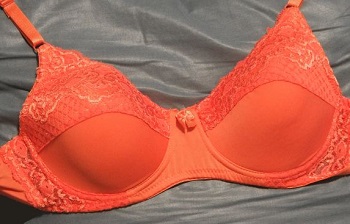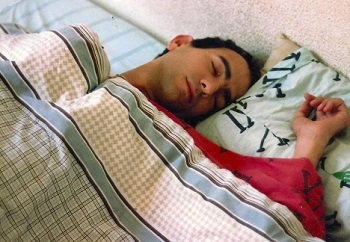A connected apparel maker has now announced its latest form of clothing based wearables.
OMsignal, the wearable technology apparel company, has now announced the launch of two new offerings, one of which is a sports bra that comes with some traditional features as well as sensors that provide feedback on mobile devices.
The OMbra is made out of antimicrobial meshing as well as stretchable fabric into which there are biometric sensors.
These biometric sensors have been worked into the clothing in order to allow it to be used as wearable technology. When worn, the sensors can track various functions such as running economy, heart rate, cadence, and fatigue levels among others. This sports bra works along with the other major offering from OMsignal, which is a running platform called OMrun. It is through that platform that all the various metrics can be observed and tracked.
The OMrun is designed to translate the wearable technology’s feedback inot useful information for the wearer.
 The OMrun platform also offers the user of the wearables with a “Biometric Coach”. This feature helps to make it possible for a user to see how her latest biometric results compare to some of her previous results as well as with a goal that she has set prior to the run.
The OMrun platform also offers the user of the wearables with a “Biometric Coach”. This feature helps to make it possible for a user to see how her latest biometric results compare to some of her previous results as well as with a goal that she has set prior to the run.
While these wearables are clearly designed for a female market, the first launch from the company, back in late 2014, had been meant for male athletes. That was designed in the form of a men’s shirt that has been on the market since that time.
While the products created by OMsignal are quite unique, they are being added to a marketplace that is increasing rapidly in size. Moreover, it is expected to be a category that will see a considerable amount of rapid growth over the next few years, as well. The wearables sector, as a whole, is working hard to reach mainstream status with tech embedded clothing forming a rising part of it.
This suggests that OMsignal is going to be facing an increasing amount of competition over the next few years as more rivals start to make their own product launches.
A new study has revealed that many gadgets overestimate the number of hours wearers are sleeping.
As 2016 gets off to a new start and people begin their resolutions, many are using wearable technology to help them to try to get in shape, improve their fitness, lose weight, or achieve better overall health.
As a part of that, many users of wearables have been tracking their sleeping habits through their gadgets.
That said, a new study has now suggested that the promises made by wearable technology to help you to measure the length of a night’s sleep may not be accurate at all. The research showed that devices, which primarily included Fitbit and Jawbone gadgets, were overestimating the number of hours of sleep people were actually receiving. This study was conducted as a review of 22 other published studies that used these device for this purpose.
Many of the articles found the wearable technology could accurately complete their measuring functions.
 Sleep wasn’t the only issue that was pointed out in this research. Both the Fitbit and Jawbone devices were shown in many of the articles to be able to complete the counting tasks in a lab as well as in the field. However, there was only a single study that had actually looked into the capability for Fitbit to measure distance. What it found was that Fitbit was programmed to overestimate a slower speed and would underestimate a faster speed. This could cause the results to be skewed.
Sleep wasn’t the only issue that was pointed out in this research. Both the Fitbit and Jawbone devices were shown in many of the articles to be able to complete the counting tasks in a lab as well as in the field. However, there was only a single study that had actually looked into the capability for Fitbit to measure distance. What it found was that Fitbit was programmed to overestimate a slower speed and would underestimate a faster speed. This could cause the results to be skewed.
The accelerometry was a central component for measuring the wearer’s physical activity. The study indicated a strong link between slower and faster motion and inaccurate results. Moreover, when conducting an assessment of several comparative analyses of the wearable tech devices, the researchers determined that the wearables from both brands were underestimating calorie levels while they were overestimating the number of hours a user was sleeping.
The outcome of the new study was, therefore, that while these devices are relatively precise when it came to functioning as a pedometer that would count steps, they may not be nearly as accurate in their ability to calculate the number of calories that are burned or the number of hours of sleep an individual may be receiving.
 The OMrun platform also offers the user of the wearables with a “Biometric Coach”. This feature helps to make it possible for a user to see how her latest biometric results compare to some of her previous results as well as with a goal that she has set prior to the run.
The OMrun platform also offers the user of the wearables with a “Biometric Coach”. This feature helps to make it possible for a user to see how her latest biometric results compare to some of her previous results as well as with a goal that she has set prior to the run.
 Sleep wasn’t the only issue that was pointed out in this research. Both the Fitbit and Jawbone devices were shown in many of the articles to be able to complete the counting tasks in a lab as well as in the field. However, there was only a single study that had actually looked into the capability for
Sleep wasn’t the only issue that was pointed out in this research. Both the Fitbit and Jawbone devices were shown in many of the articles to be able to complete the counting tasks in a lab as well as in the field. However, there was only a single study that had actually looked into the capability for 